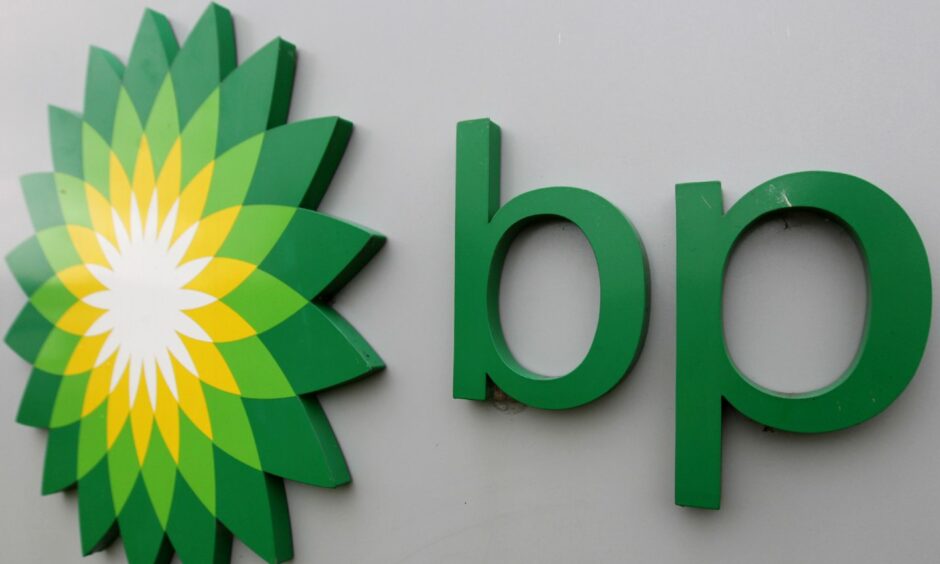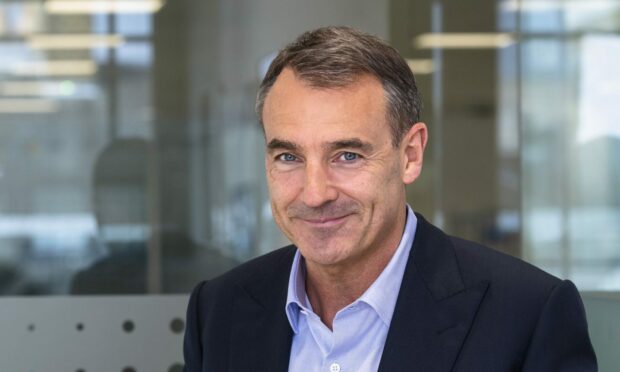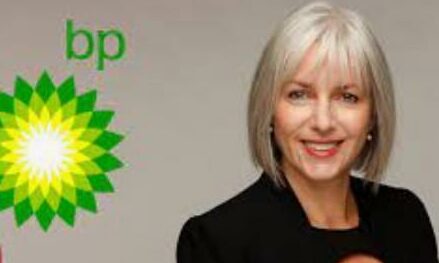BP’s chief executive has defended the company’s share buyback and dividend plans as campaigners criticised its record quarterly profits as “obscene”.
Tuesday saw BP post underlying profits of £6.9 billion ($8.4bn) in its second quarter of 2022 – the largest quarterly earnings by the company in 14 years and triple that of the same period in 2021.
The firm said the performance was driven by strong refining margins, continued “exceptional” oil trading performance,.
The supermajor said it would be committing a large portion of those profits to raising its quarterly dividend by 10% and launching a further £2.9bn ($3.5bn) buyback programme over the next quarter.
However, climate campaigners said the company’s results were “a clear sign that our energy system is fundamentally broken”.
BP’s bumper profits come as soaring energy and fuel bills contribute to a worsening cost-of-living crisis.
Recent estimates suggest a typical UK household energy bill will rise to more than £3,600 per year by next summer.
‘Backing Britain’
“In terms of cost of living I think we all have to recognise it’s a very difficult place for people, not just in the UK but across the world right now,” chief executive Bernard Looney said during an investor call on Tuesday morning.
“Our people inside the company get it, they want to help, and the question becomes what we can do to help – and of course what we do in the UK is we’re backing Britain.”
He pointed to the company’s commitment to invest £18bn in the UK by the end of the decade, creating over 10,000 jobs over the same period.
“The majority of that is going to be in the energy transition but also in energy security for today in hydrocarbons, and the Murlach development that we’re taking to the next stage in the North Sea is one example,” he added.
We pay taxes and when prices are higher, rightly we pay higher taxes.”
BP CEO Bernard Looney
“The third thing we do is we pay taxes and when prices are higher, rightly we pay higher taxes.
“Now we have an Energy Profits Levy which means we’ll pay even more taxes on top of what we had already planned and that’s what we will do.”
Today we share our 2Q results. We continue to work hard to provide the oil and gas the world needs now, while at the same time investing to accelerate the energy transition. $bp
— bp (@bp_plc) August 2, 2022
Campaigner Freya Aitchison said: “This announcement of yet another obscene profit for BP is a clear sign that our energy system is fundamentally broken.”
“Rising energy prices are a key driver of the cost of living crisis which is plunging millions of people in the UK into fuel poverty, yet bosses and shareholders at BP are getting even richer by exploiting one of our most basic needs.
“BP is also worsening climate breakdown and extreme weather by continuing to invest and lock us into new oil and gas projects for decades to come.
“Instead of allowing these companies to continue causing social and environmental devastation to boost their profits, we need to overhaul our energy system to rapidly phase out oil and gas.”
Offshore Energies UK (OEUK), which represents the offshore sector, said rising energy costs were a global phenomenon.
The organisation’s energy policy manager Will Webster said: “The increase in oil and gas company profits is because there’s been a big increase in global prices which UK industry cannot significantly influence.
“We are very concerned at the impact this will have on consumers and on the economy. But those increased profits do mean that the companies producing oil and gas from UK waters are paying a lot more taxes.”
OEUK said the sector is now paying the highest rate of tax in its history and that Office for Budget Responsibility (OBR) projections suggest it could contribute at least £12bn to Treasury coffers in 2022.
“What we can be sure of is that when global prices go down profits will also decline. But the problem that won’t go away is energy security. And security of energy supplies is a real long-term problem for the UK and Europe,” he added.

Reported oil production for the quarter was 1.27 million barrels of oil equivalent per day (boepd), in addition production of around 924,000 boepd from its gas and low carbon energy unit.
Last quarter saw profits of £4.9bn ($6.2 bn), though BP’s results were “partly offset” by paper write downs of £19.2bn ($24bn) and £1.2bn ($1.5bn) as a result of the “loss of significant influence” and its exit from its share of Russian group Rosneft.
The second quarter also saw the completion of share buybacks amounting to £1.9bn ($2.3bn), with the full £2bn ($2.5bn) buyback programme completed on 22 July.
Net debt fell for the ninth successive quarter to reach £18.9bn ($22.8bn) at the end of the second quarter.
The stellar results prompted the group to up its quarterly divided by 10% to 6.006 cents per share, and launch a further £2.9bn ($3.5bn) share buyback programme.
BP Chief executive Bernard Looney said: “Today’s results show that BP continues to perform while transforming.
“Our people have continued to work hard throughout the quarter helping to solve the energy trilemma – secure, affordable and lower carbon energy.
“We do this by providing the oil and gas the world needs today – while at the same time, investing to accelerate the energy transition.”
Windfall tax
BP also began to quantify the effects of the UK’s new Energy Profits Levy (EPL), which increases the headline rate of tax from 40% to 65% on profits from its North Sea business as of 26 May 2022.
The introduction of the so-called windfall tax will result in a one-off non-cash deferred tax charge of an estimated £658m ($800m), BP said, reflecting the higher tax rate effective between 1 October 2022 and 31 December 2025.
Speaking during an investor call following publication of the results, Mr Looney said the figure provided was not a full estimate of the cost of levy, but represented “an accounting issue around deferred taxes and the changes in valuation”.
He pointed to updated estimates which suggest a group-wide underlying effective tax rate (ETR) of around 35% for full-year 2022, but said the full implications of the levy would be shown when the company reports its taxes at the end of the year.
At the company’s annual general meeting earlier this year, Mr Looney warned that. “unpredictable” taxes such as this “would challenge investment in home-grown energy.”
However, speaking during a parliamentary committee last month, UK boss Louise Kingham told MPs that: “We don’t think at BP that the profits levy will impact on the investment plans we have in the North Sea.”
Analyst reaction
BP’s record results align with those of its fellow supermajors. Last week Shell reported eye-watering pre-tax profits of £30.3bn ($36.9bn), while Exxon and Chevron also saw their highest ever quarterly takings.
Brewin Dolphin investment manager Stuart Lamont noted: “BP has mirrored Shell’s exceptional results last week – albeit, with the disposal of its stake in Rosneft hanging over the first six months of 2022.
He said the company was in a “great position” thanks to rising sales, strong profits, and falling debt.
“Shareholders will be pleased that this is being converted into returns, with 60% of surplus cashflow being distributed to them through dividends and share buybacks. However, BP’s and its peers’ results are also likely to attract further political attention, which is becoming a real risk for the future.”
Panmure Gordon oil and gas analyst Ashley Kelty said that while the group’s production guidance looks to remain flat for the rest of the year “refining margins will remain high due to supply disruption from Ukraine conflict.”
He also noted the supermajor was “ahead of the game” in recognising the impact of its Russian writedowns, which Shell’s results did not.
Cost of living crisis warning
The announcement of the bumper profits comes as households across Britain have been warned they could face an annual energy bill in excess of £3,600 this winter.
Energy consultant Cornwall Insight said a regular gas and electricity bill in Scotland, England and Wales could reach £3,615 in the new year, which is hundreds of pounds more than previous predictions.
Last month, Cornwall Insight predicted that annual energy bills would typically rise to £3,244 from October and £3,363 from January, but circumstances have changed significantly since then.
The company said such a bill is now likely to rise to £3,358 from October and £3,615 from January.
The Energy Bills Support Scheme (EBSS) will provide help to 29 million homes across Britain, with payments starting in October and running for six months.


Conversation